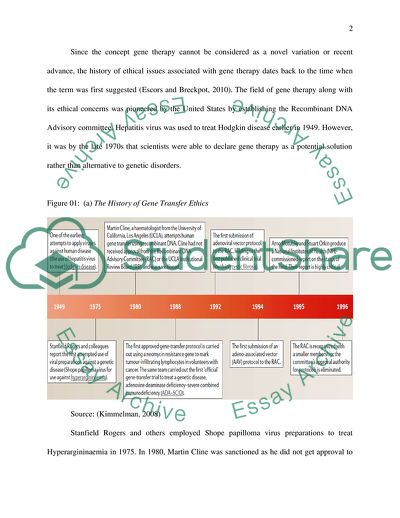Cite this document
(Ethical Considerations in Gene Therapy Essay Example | Topics and Well Written Essays - 1750 words, n.d.)
Ethical Considerations in Gene Therapy Essay Example | Topics and Well Written Essays - 1750 words. https://studentshare.org/biology/1761512-gene-therapy-ethical-considerations-paper-subject-biotechnology
Ethical Considerations in Gene Therapy Essay Example | Topics and Well Written Essays - 1750 words. https://studentshare.org/biology/1761512-gene-therapy-ethical-considerations-paper-subject-biotechnology
(Ethical Considerations in Gene Therapy Essay Example | Topics and Well Written Essays - 1750 Words)
Ethical Considerations in Gene Therapy Essay Example | Topics and Well Written Essays - 1750 Words. https://studentshare.org/biology/1761512-gene-therapy-ethical-considerations-paper-subject-biotechnology.
Ethical Considerations in Gene Therapy Essay Example | Topics and Well Written Essays - 1750 Words. https://studentshare.org/biology/1761512-gene-therapy-ethical-considerations-paper-subject-biotechnology.
“Ethical Considerations in Gene Therapy Essay Example | Topics and Well Written Essays - 1750 Words”. https://studentshare.org/biology/1761512-gene-therapy-ethical-considerations-paper-subject-biotechnology.


